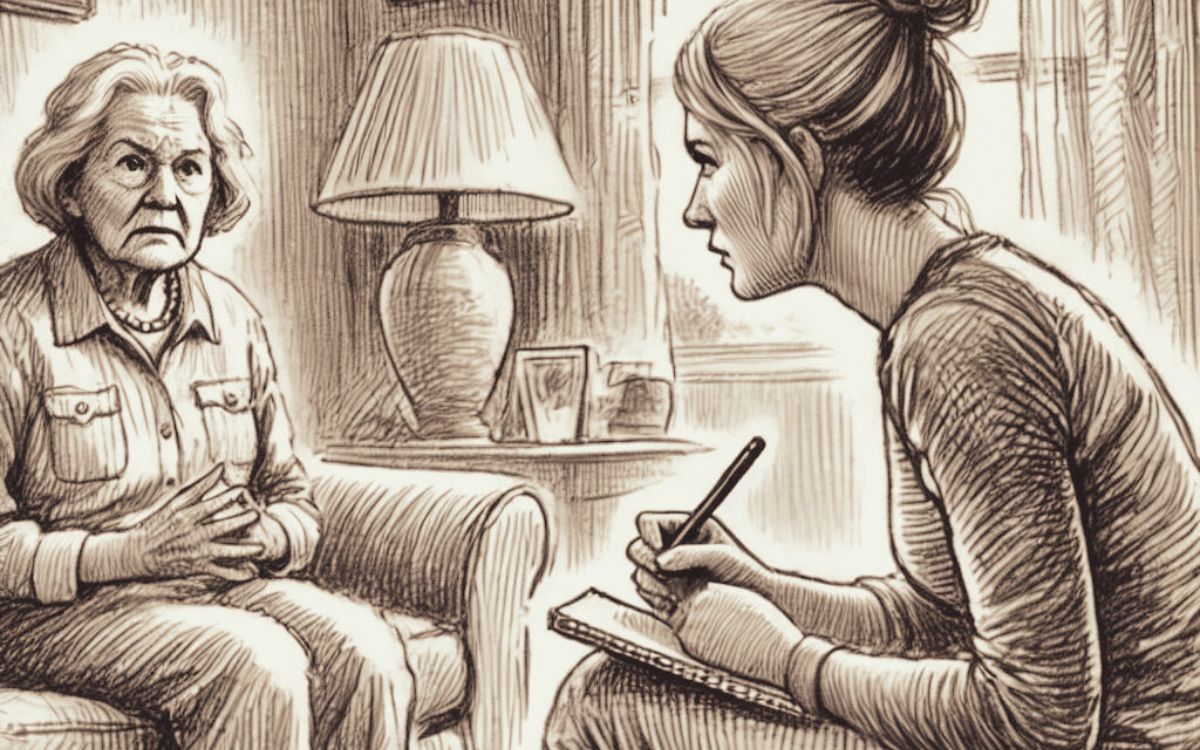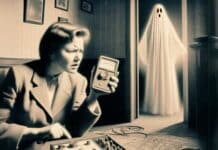Witness testimony in paranormal investigations is often unreliable. JAIMIE LEE-BARRON says treat witnesses kindly but evaluate their stories carefully due to potential biases and emotions

Interviewing witnesses to the paranormal
Let me begin by saying that people willing to confide in you about something that has happened to them should always, in the first instance, be accepted and taken at face value.
It must be remembered that any sort of perceived paranormal experience can “rock our world” as it were, and some of them can be extremely frightening.
Therefore, when a person tells you their story, we have to accept that it as being very real to them. Whether or not it seems so to us. These people will sometimes be in a heightened emotional state and need to be treated gently with compassion and understanding.
At this stage, our own opinions do not matter and it is always far more important for us to be kind than it is for us to be correct. These are peoples lives we are talking about and so need to be respected.
That said there are, of course, all different types of witnesses that will tell you all types of things for all types of reasons, so we will, when the time is right, need to examine their testimony to help determine how best to proceed, certain questions will need to be asked in a certain way, with very careful note being taken of any answers given (or the lack thereof).
The way we experience the world is determined by our nurture and nature. We enter any situation carrying our ideas, opinions and beliefs with us. Indeed, it is nigh on impossible for any human being to remain 100% objective because of this, no matter how hard we try (but we must still always “try”!) simply because these personal beliefs are a vital part of ourselves and actually make us who we are.
Literally everything we see and do is coloured by this and there really is no escaping that fact.
This often (but not always) renders eyewitness testimony an extremely unreliable source of information in and of itself with any such testimony requiring support by additional hard, empirical evidence. Obviously, this is incredibly difficult in the field of the paranormal.
“But what if there were more than one witness?” you ask. “Surely, if there were more than one person to corroborate the story, then that must mean it is a ‘true’ story?”
Well, I hope the following information will clarify that assumption a bit:
- Put 10 people in a room, and expose them to some event, then immediately separate them and interview each of them separately. You will end up with 10 varying accounts regarding what happened. Some of these testimonies will be quite similar while others will vary enormously, in other words, you will have 10 different accounts of exactly the same thing, none of which are anywhere near 100% accurate. This is all to do with what people notice, how people react to whatever happens and how people remember what has happened because of the way it influenced the emotionally at the time.
- Put 10 people in a room and expose them to an occurrence, and this time leave them in the room to discuss amongst themselves what has happened. You will end up with an over all consensus regarding what they have witnessed. This consensus will be very heavily influenced by the strongest personality, who will lead all of the other members of the group in eventually agreeing on what they have seen.
Once again, this will be a complete and utter hodge podge of what actually happened but, to anyone listening to this group, it would seem that because they all tend to agree upon some of the major details of what they have seen, it would appear to be far more reliable than our first example: But, in truth, it is not because it has been contaminated by consensus, or what psychologists call “memory conformity”.
In this example, group 1 could represent an individual witnesses to an alleged “paranormal” event. Whereas group 2 could represent the “paranormal investigation team”, as any team needs to be led by someone.
In this instance, the lead “investigator” (who will often have the most forceful personality) or someone else such as the “psychic medium” being used, simply because they can say more or less whatever they want, knowing that it cannot be corroborated by any other members of the group and that their opinion is respected and so is, to all intents and purposes, quite beyond reproach.
When it comes to investigating or researching the paranormal it is witness testimony that is often the meat and potatoes of what we do as there is seldom, if ever, any more concrete evidence to present. Even after more than a century of scientific efforts made first by the Society for Psychical Research and joined later by the Parapsychology departments of numerous universities, we still do not have one shred of conclusive evidence when it comes to the existence or nonexistence of ghosts.
And without this much need evidence to back up whatever people think they might have seen or heard, we are forced to rely upon witness testimony to a far greater degree than we should otherwise. After all, it is difficult to obtain material evidence from something that is, in essence, immaterial.
It is for this reason that it’s absolutely imperative we bring some critical thinking to bear upon what we are doing, take our witness statements carefully and question them and record them properly for later reference so we can make the absolute best from what we have.
Any detective will tell you that, if they take statements from a half dozen eyewitnesses to a crime that has taken place, and they all seem to more or less corroborate with each other, then that is like a red flag to a bull and they will know straight away that something is not quite right. In reality, when different people recount their own version of something that has happened there will be differences, some large, some small but all of them important if we are to get anything like a reasonable picture of what actually happened.
The above is worth thinking about when we are conducting our own investigations and research, and I hope it might be of some help in understanding a bit more regarding the unreliability of witness testimony.
JAIMIE LEE-BARRON, based in Greater Manchester, is a Christian parapsychologist and ordained minister with specialised training in the healing ministry of Deliverance.







